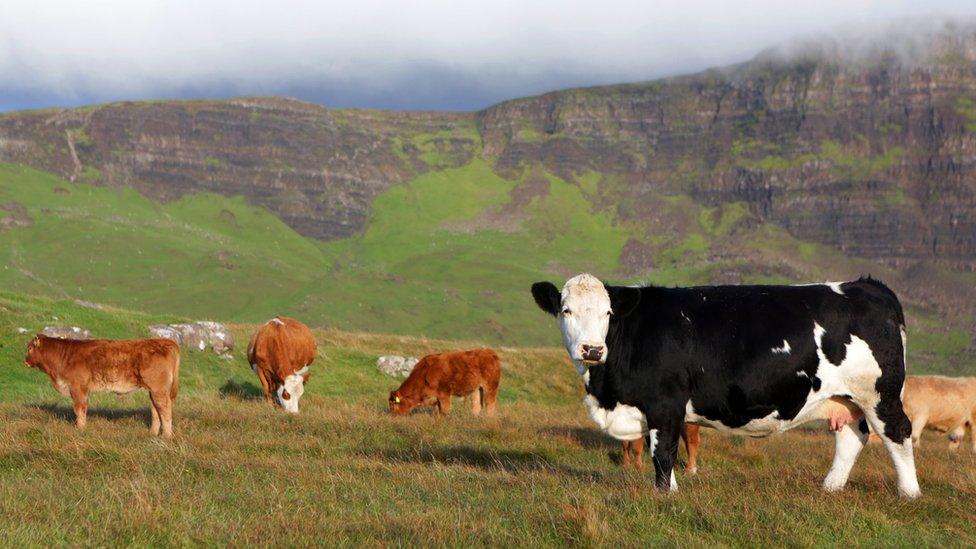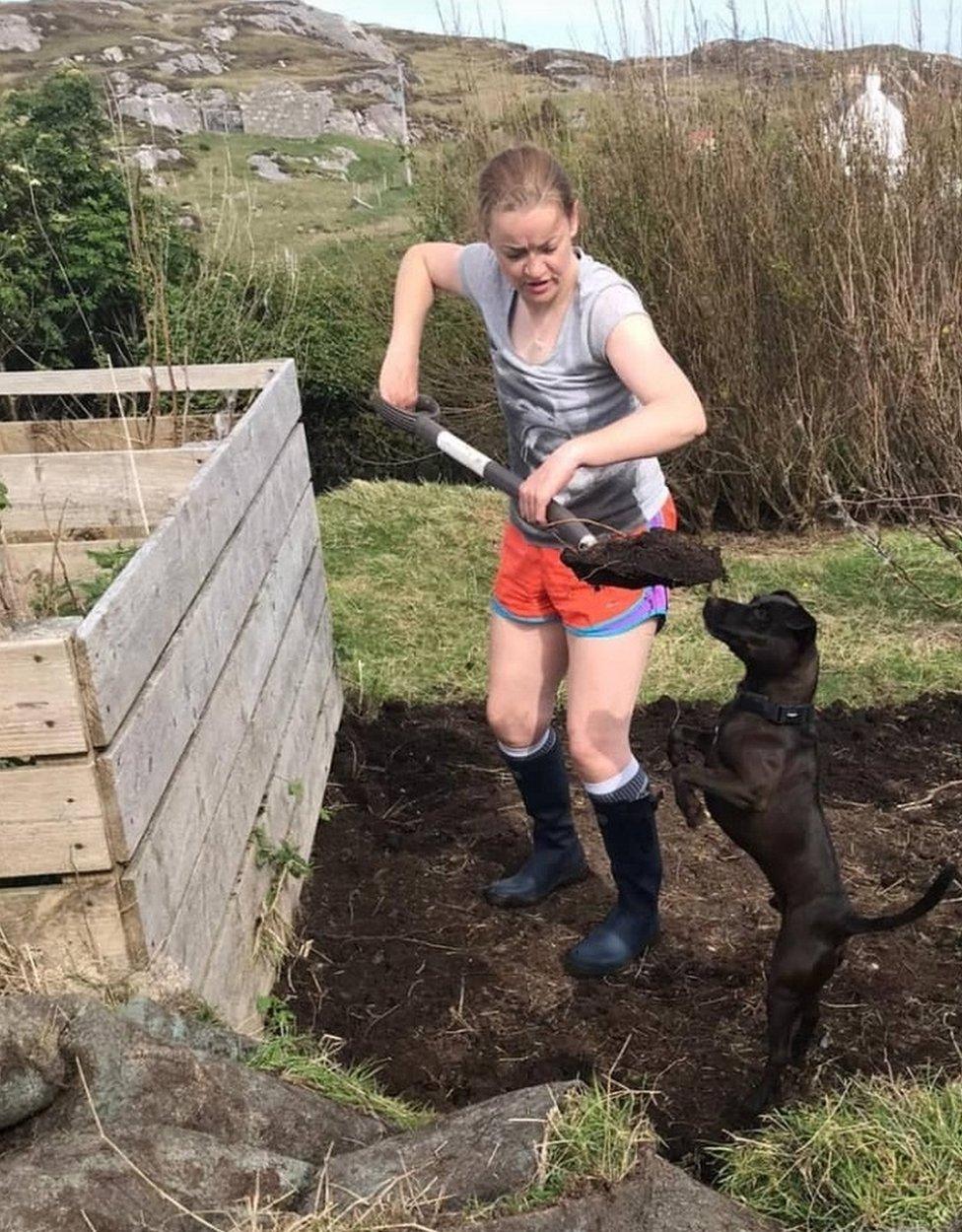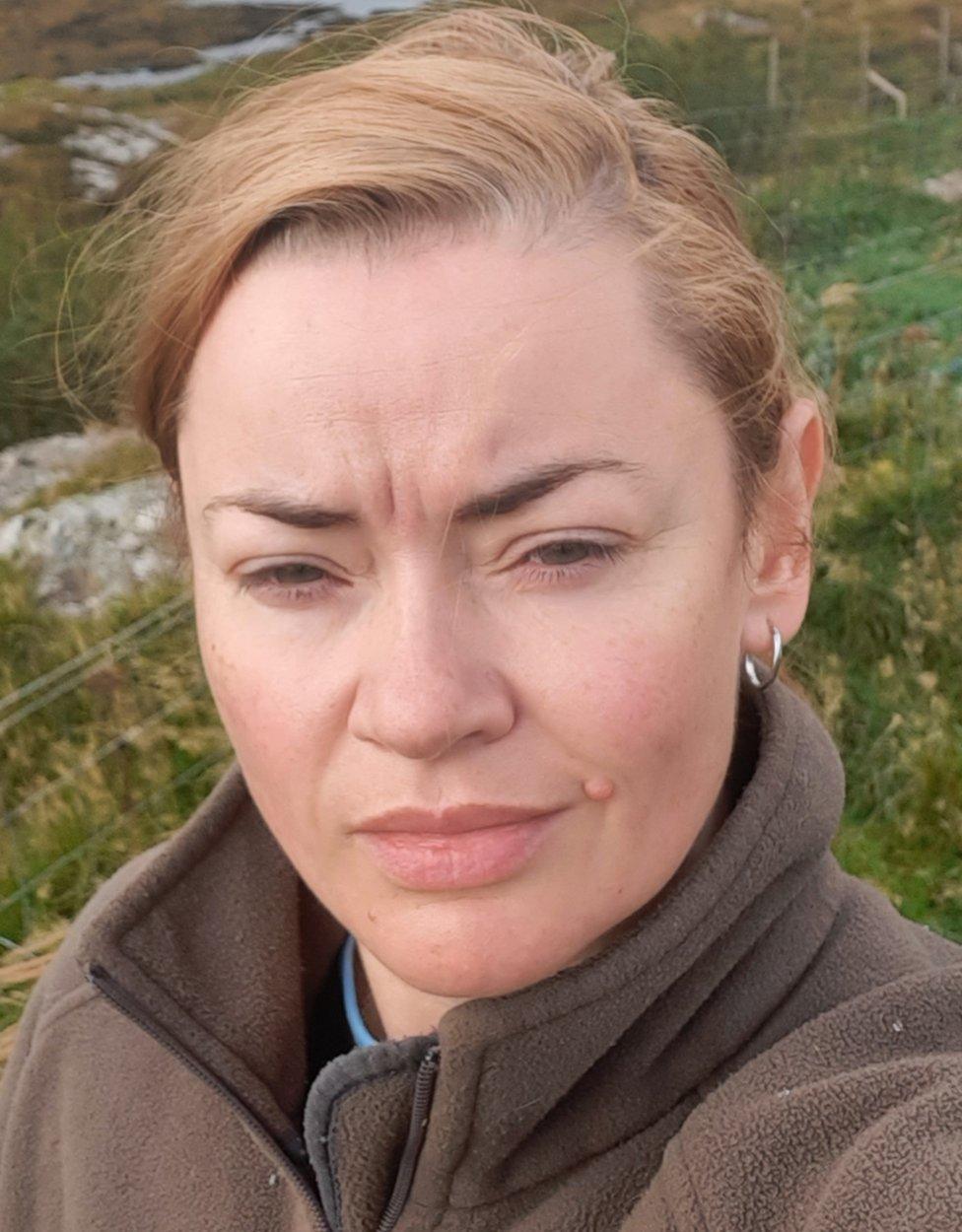Rising costs impacting on a unique Scottish way of life
- Published

Crofters are changing how they live and work because of severe increases in costs, according to the Scottish Crofting Federation (SCF).
Crofting is a system of landholding described as unique to Scotland.
An estimated 33,000 people live in crofting households across parts of the Western and Northern Isles, Highlands, Argyll and Moray.
The SCF said initial results of a survey it is running suggested feed and fuel costs were of greatest concern.
Carolyn MacPhee, a tenant crofter on Harris in the Western Isles, said she and others were trying to find ways to cut costs, including alternatives to heating oil, which many rely on for hot water and to warm their homes.
But she said there were few savings available for crofters who were feeding up animals for sale.
She said: "If you've got livestock, you can't put them on rations. Feeding obviously affects the selling price and the weight further down the line. So it is a battle."

Carolyn MacPhee is a tenant crofter in the Western Isles
The SCF's Costs of Input Survey, which closes on Wednesday, is gathering information on financial pressures.
The rising cost of animal feed has emerged as the biggest concern so far, followed by fuel prices for vehicles and machinery and then electricity costs.
The SCF said some people were being creative in their ways of cutting costs, including the use of virtual fencing to reduce reliance on physical fences, which can be expensive to erect and maintain.
Virtual fencing involves cattle wearing electronic collars which give the animals a mild electric pulse if they stray beyond where they should be grazing.
Other solutions include crofters growing their own grain for feed, but in some areas the SCF said crops had been destroyed by overgrazing by wild geese.
It said there were other concerning developments.
A spokeswoman said: "Not every rising cost has a simple solution and not every solution is available to everyone.
"Some respondents indicate that the changes that they are making include reducing stocking (livestock) numbers, cutting back on their own basic needs such as heating, or to cease certain crofting activities altogether."
Coffee logs
Like many other crofters, Ms MacPhee holds down different jobs as well as looking after her croft. She has a full-time job in the third sector and also works nights in a local hotel.
Rising heating oil costs to warm her traditional croft house is one of her big concerns and she has seen the price of filling her 1,200-litre oil tank rise from 36 pence per unit in 2020 to 95p now.

Ms MacPhee said islanders were trying to be innovative in how they heated their homes
Ms MacPhee also has a multi-burner for heating, and like other islanders has been trying to source alternative fuels for it.
She said: "I've been collecting coffee grinds from some business to make coffee logs at home, and I have a paper brick maker which basically mashes down paper and cardboard to make bricks you can burn.
"Because I'm a crofter I am allowed to burn peat and I do now burn much more peat than I ever had to.
"Before, I would cut peat as a tradition but now I'm using every single scrap to keep myself warm and as an alternative to oil."
Ms MacPhee said she had so far seen no benefit of schemes designed to help people with their energy bills.
Additional funding
The Scottish government said it was acutely aware of the cost of living pressures currently facing households and businesses, including farmers and crofters.
A spokesman said: "While most of the policy levers to address energy prices and inflation lie with the UK government, we are doing what we can within our limited powers.
"We have brought forward the farm payment date to September, to support Scotland's agriculture sector with cash flow.
"More than 14,000 businesses have already benefited from this change - more than £320m has been paid out with money due to hit bank accounts imminently."
He said additional funding would be put towards tackling fuel poverty.
The UK government said it was putting assistance in place.
A spokeswoman said: "We recognise people are struggling with the rising cost of living, including those who use heating oil to heat their homes.
"That is why, in addition to a payment of £400 from October to March and a two year Energy Price Guarantee for their electricity costs, we will provide a further payment of £100 for households who are off the gas grid."